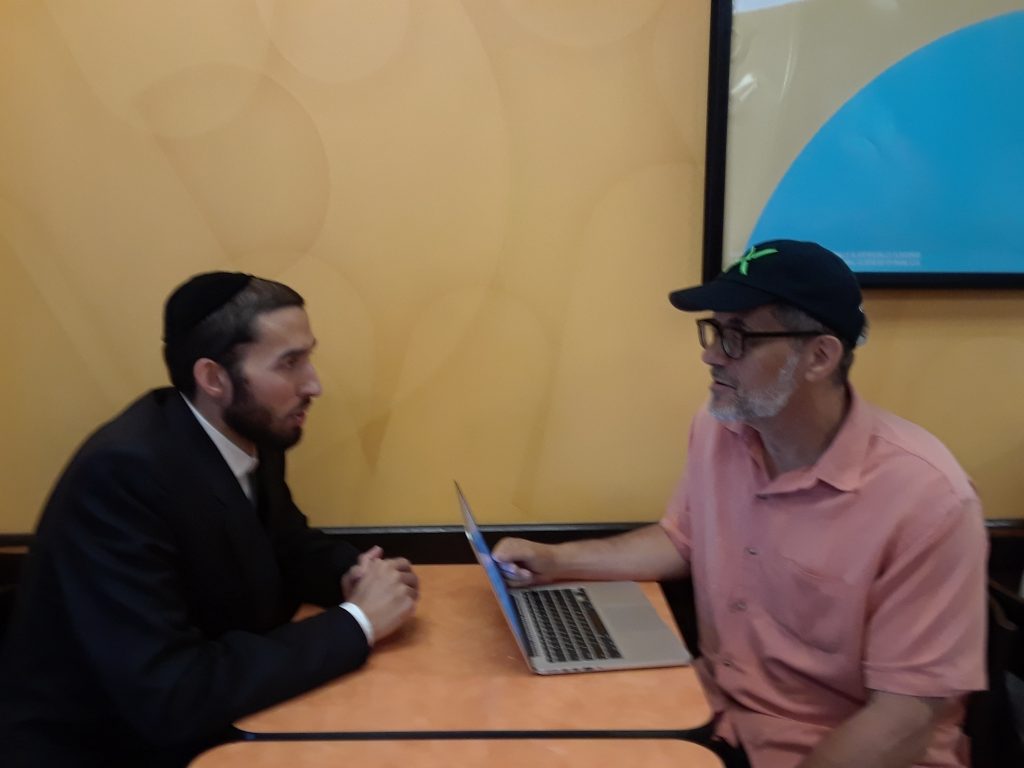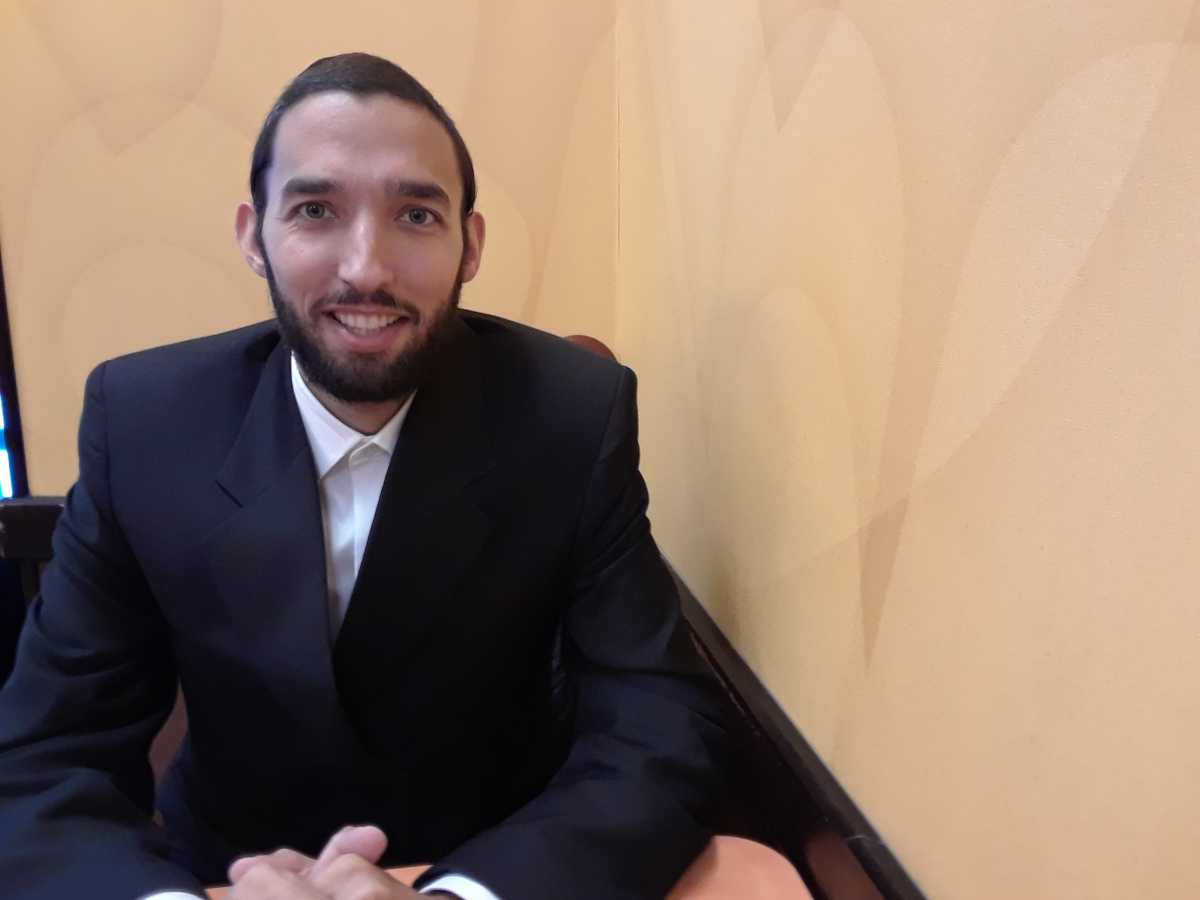Walking the Borough Park streets with Simcha Eichenstein, it’s easy to see why he’s the consensus pick among the largely orthodox Jewish and Hasidic neighborhood to replace longtime Assemblyman Dov Hikind.
He listens politely when people stop him on the street to voice their concerns. He’ll point out new residential buildings and explain how the state affordable housing subsidy known as 421a needs inclusion for larger units with three or more bedrooms to accommodate the large, but often impoverished Jewish families. He’ll nod at a clothes rack in front of a small shop on 13th Avenue and voice empathy for the merchant who is constantly getting tickets for it as he struggles to eke out a living.
“This is my community. I was born and raised in Borough Park on 53rd Street, and now my wife and I are raising our own family with four kids right here. I wouldn’t live anywhere else for anything,” said Eichenstein, who has no opponent in the upcoming Democratic Party primary for the 48th Assembly District seat representing Borough Park and Midwood.
The son of a prominent rabbi and from a scholarly Talmudic family, Eichenstein, 35, is also a pioneer in that if elected as expected in November he will become the borough’s first Hasidic lawmaker at any level. And as such, he wants to help dispel any preconceived stereotypes the secular community may have towards this insular community.

Among these is the notion of late in the media that yeshivas (private Jewish day schools) are not giving a well-rounded secular education in such subjects as math, science and English.
“It’s time to call it [the yeshiva issue] what it is. You have a group of disgruntled individuals who are on a smear mongering campaign of the yeshiva and broader Hasidic community. They’ve been on this campaign now for three years trying to paint this very dark picture of what’s happening in the yeshiva community, even releasing a report completely based on lies and on false narratives,” said Eichenstein.
“The bottom line is the New York City Department of Education visited schools, and the city draws the conclusion in their report that they were pretty satisfied with what they saw at these schools. Now I know the press has been trying to nitpick particular criticisms where they can, and I get it. I just wish we would have seen some reasonable reporters read the 14-page DOE report and focus on the positive because there actually is a lot of positive on this report,” he added.
In particular, Eichenstein said when looking at yeshiva education, people should also keep in mind something the DOE agreed with in the report by writing, “A strong argument has been made that Judaic studies can be a powerful context in which to cultivate critical thinking and textual analysis skills.”
“Aside from what everyone is saying, it’s not like the other half of the day, the non-secular side doesn’t have excellent academic and rigorous merit. It teaches how to debate Judaic law, build on it, interpret it, to understand when is it relevant and when is it potentially non-relevant. A lot of these teaching methods are skills that are taught in law school. So there are serious studies throughout the day as well.
“The second point is I am a product of the yeshiva system. I really believe my yeshiva education is what prepared me for my professional life,” he added.
And Eichenstein’s professional life makes him well-suited to serve in the state assembly. This includes a stint working as a senior advisor to State Comptroller Thomas DiNapoli for several years, and then working for several years in the de Blasio Administration as part of the mayor’s intergovernmental team.

This role included working in Albany on behalf of the mayor and the city, and being tasked with carrying out legislative, budgetary and regulatory matters as they pertain to the city. In this position, Eichenstein’s portfolio included all health and human services agencies as well as transportation.
“This has given me a tremendous amount of exposure in Albany, working with members, leadership and staff. It actually taught me the legislative process. Getting legislation passed is not easy. It doesn’t happen overnight. In some instances it can take years for a piece of legislation to come to fruition,” he said.
As far as big-ticket legislative items, Eichenstein said he is a realist.
“I’m not here to sell my future constituents a bag of goods. Here’s what I’m here for. We as a community have been under attack. We are often viewed with suspicion. There are those that don’t begin to understand our lifestyle. I believe we need to hit a rest button,” said Eichenstein.
“We need to engage with all communities, even those completely on the opposite ideological aisle from us. There’s a lot of common ground we can find. I’m not naive. I get it. True there are certain issues that we will never agree upon, but I do believe that we can find common ground in more places than what people think,” he said.
While Eichenstein does not have a primary, he may have an opponent in the Nov. 6 general election.






